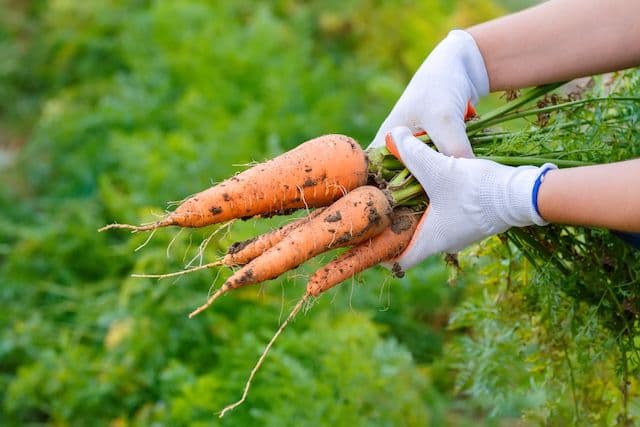Food Too Dirty to Eat During Pregnancy?
Food and Nutrition
Obie Editorial Team

It's even more important during pregnancy
The most important time to be careful about food safety is during pregnancy. Both mother and fetus are at high risk of some foodborne illnesses due to the mother’s weakened immune system during pregnancy and the unborn baby’s underdeveloped one. Practicing good food safety is vital to protect both mother and baby from potentially life-threatening illnesses. When it comes to choosing clean produce, the Environmental Working Group’s (EWG) new “dirty dozen,” is a great tool to use. The list covers the 12 fruits and vegetables most highly contaminated with farm chemicals.
The commonly consumed item that has jumped to number one on the 2011 dirty list may come as an unpleasant surprise:
Apples, the nations’ most commonly consumed fruit after bananas.
Next on the “dirty dozen” list is celery, followed by strawberries, peaches, and spinach.
You may find yourself asking how you’re expected to consume 2 ½ cups of fruits and veggies every day when you must choose between either buying organic versions of these foods or avoiding them completely. Thankfully, the amount of pesticides found on these fruits and vegetables is so little that purchasing conventionally grown versions of apples, peaches, and grapes (all items on the dirty dozen list) is likely safe and poses little or no health risks at all. The advice from the EWG remains that eating fruits and vegetables, regardless of their ranking on the list, is more important than eating fewer or decreasing the variety of fruits and vegetables in your diet. The EWG’s website states “…eating conventionally-grown produce is far better than not eating fruits and vegetables at all.”
Should you go organic?
Although the EWG recommends that consumers steer clear of conventionally grown produce found on the Dirty Dozen list, this isn’t a realistic option for everyone. Organic produce can be expensive, and even this produce isn’t 100% pesticide-free, though the type of pesticides used are mostly natural and less toxic.
If going organic isn’t going to fit into your budget, don’t feel that you need to forego all fruits and vegetables on the dirty dozen list for good. Apples contain phytonutrients that help regulate blood sugar, celery is an excellent source of vitamin C which helps support the immune system, and a recent study showed that strawberries can help prevent many diseases by making red blood cells stronger.
While it is optimal to choose organic over non-organic, concerns over pesticides should not prevent you from consuming nutritious fruits and vegetables that can promote long, healthy life. If you can’t go organic, ‘spray away’ by filling a spray bottle with three cups of water and one cup of white vinegar. Squirt the produce about six times to coat the surface, then rinse under cold water to wash the residual vinegar (and worries of contamination) away!
EWG’s Shopper’s Guide to Pesticides in Produce
Dirty Dozen :
- Apples
- Celery
- Strawberries
- Peaches
- Spinach
- Nectarines-imported
- Grapes-imported
- Sweet bell peppers
- Potatoes
- Blueberries-domestic
- Lettuce
- Kale/collard green
Clean Fifteen:
- Onions
- Sweet Corn
- Pineapples
- Avocados
- Asparagus
- Sweet Peas
- Mango
- Eggplant
- Cantaloupe- domestic
- Kiwi
- Cabbage
- Watermelon
- Sweet Potatoes
- Grapefruit
- Mushrooms









